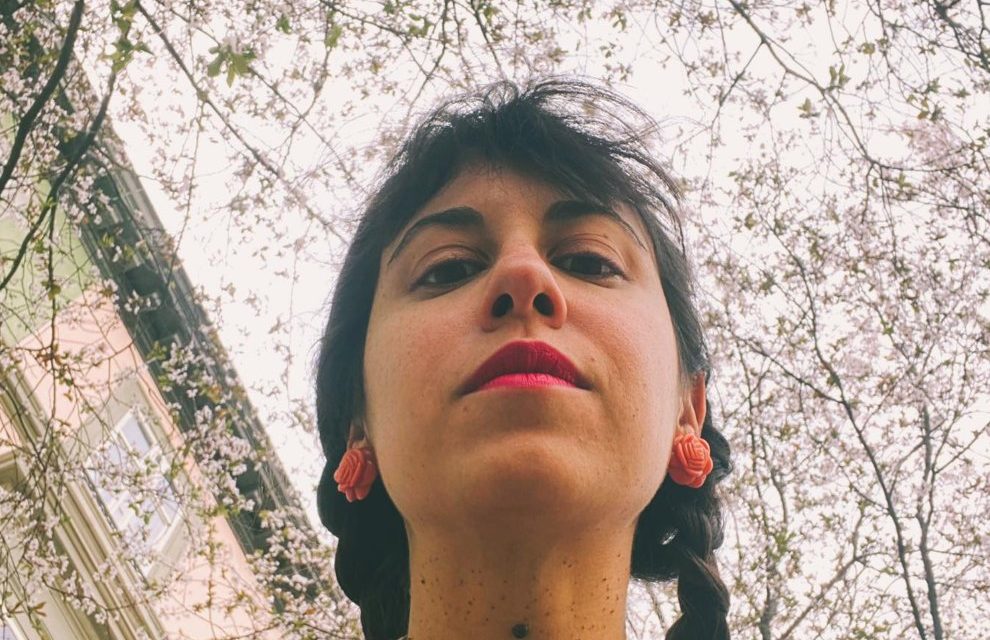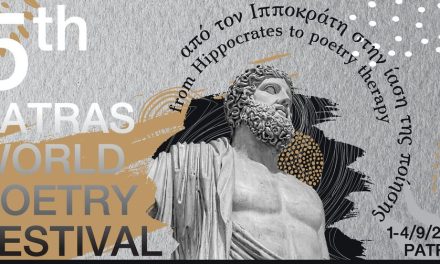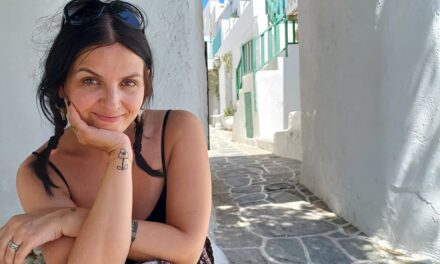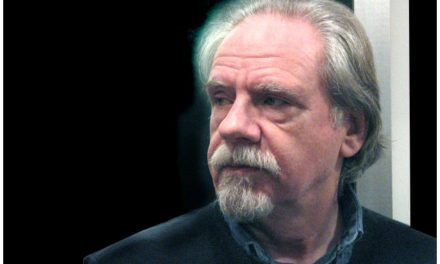Valia Tsaita-Tsilimeni teaches literature, language and translation at the University of Geneva where she defended her PhD on issues of identity, social criticism and literary writing in the so-called “generation of 1920” in Greece. Apart from her academic duties, she is involved in photography. Wild Grass (Kichli Publications, 2017) is her first poetry book. In the fall of 2023, her second poetry book will be released (Kichli Publications) under the title Essential Items.
You teach language, literature and translation at the University of Geneva. Could you tell us a few things about your academic field of expertise?
I do teach language, literature and translation, but my main area of expertise is literature and more specifically poetry. During my postgraduate studies, I focused on comparative literature and worked primarily on texts by Kostas Ouranis and Charles Baudelaire. My field of research at the time began with an article published by Ouranis in the magazine “Grammata Alexandreias” [Letters of Alexandria] (1918) on Les fleurs du mal in which he identifies five tragedy acts. This approach was enough to arouse my interest in the poetry of an era which had been – until very recently – largely bypassed by the world of criticism and historians of the so-called modern Greek literature: I refer to the “generation of Karyotakis”, the generation of “decline” according to others, to the poetry of the interwar period. Reading all the works by the poets of the generation in question, and having already identified multiple points in the poetry of Ouranis which moved their work away from a primarily literal interpretation of the term “decline”, I chose to delve into the dark aspect of the poetry of “the generation of the 1920s”. From the early start I was convinced of the multidimensional work of the corpus and thus I wanted to highlight in how many ways it is a poetry of action with a deep personal vision that laid the foundations for a more humane society,which is basically interested in the importance of human experience, leaving aside national visions and heroic practices that prevailed in the literary field until then.
This approach gave me access to a canon that runs through the poetry of the 1920s, the canon of contrasts. How light coexists with darkness equally, proving that if you remove one, you automatically lose essential access to the other. A case in point is the poetry of Maria Polydouri which often reminds us that without darkness the soul cannot perceive its light. Following similar indicators, I identified in this corpus a thematic richness that exceeded the one-dimensional presentation that prevailed in the world of criticism until relatively recently. Thanks to a series of mainly sociological theories, I tried to express myself on issues of identity and self-promotion in an era that I consider to be communicating with today’s Greek society and the conditions of its formation. The above specialization was the subject of my PhD, which I defended in 2017 and laid the foundations for a further research course that often questions the construction of the personal and collective self, based on tendencies of opposition, irony, the study of ruins, etc.
“My scientific research on the so-called generation of the 1920s came to verify what I already unconsciously experienced till then: the importance and mostly the presence of memory and the past in every present and future”. Tell us more.
The 1920s generation has previously been characterized as nostalgic for reasons related to the way they look to the past. It is true that the poets make many references to the past, to historical time, as well as to memory. But I don’t think that makes them passively nostalgic.The way they turn to the past reminds me of Benjamin’s angel, who, with his back turned to progress and eyes fixed on the ruins, wishes to take care of, not to forget, to process the past data. It is therefore an appreciation of the past, without which the present and the future would unfold in a less conscious way. In the positions and reflections of the poets of the interwar period, we can easily distinguish their dynamic attitude towards the past. For instance, poet Napoleon Lapathiotis writes on 16 January 1927:
«Nothing exists for me but the past: the present does not exist for me, my future is incomprehensible. All that I possess, perceive, and consider, at the same time, both present and future – is the past… There is nothing truly, positively and eternally, but what has already existed”
Lapathiotis’s reflection begins with a denial – of the present and the future – to end up, one line down, into something paradoxical and perhaps unexpected: their reappearance. However, this time, the present and the future seem to be reinvented by the poet, and their new nature appears in a very interesting way: we notice that following their reinvention, the present and the future are identified with each other and are integrated as a single unit into the nature of the past. Thus, we are not dealing with a perception of the absolute disappearance of the present and the future, but rather with a redefinition of these two terms in the context of which the past actively acts on the course of the individual. It feeds the present and the future, influences the perception of History throughout the centuries and to achieve this it often activates the presence of the ancestors who stand before their descendants with a stern, demanding gaze.
All of theaforementioned are also strengthened by the belief shared by this generation that the triptych of time (past – present – future) does not always move in a specific and one-sided direction. A typical example of this is the Dreamer [Oneiropolos] by Kostas Karyotakis where many movements take place within time, carried out in all directions. Studying these texts gave me a deeper awareness of the role and nature of memory, the present of the past in every present and future. It is a feeling and realization that leaves aside the purely romantic aspect of contact with the past and makes us all, on a personal and collective level, historians of life, active observers of (our) moments.
Being a poet, which are the main themes your poetry delves into? Are there recurrent points of reference in your writings?
The themes that I have been preoccupied with so far relate to the concept of difficulty and contradictions. What do I mean by that? I consider that at present humanity as a whole tends to exorcise (in the negative sense of the term) everything that hurts us, that gives us a hard time, that requires from us care, a deeper look, and often, unfortunately, entails responsibility. I go back to the contradictions of the Ιnterwar period, which doesn’t necessarily mean that I am inspired by them; I just try to bring forward the importance of duality in the world. Human life, perception and feeling constantly move between such dipoles. Our goal is not to move forward by erasing painful or demanding moments of our lives. We need to ask ourselves, to respect the difficult, without of course reaching the other end: to chase or pursue it. Any contact we may have with death, illness, negatively charged experience, chaos, the unknown, is often characterized as a burden that we wish to shed before we even realize it.Of course, part of this process is completely normal; it is an instinctive reaction that protects us. However, I believe that taming the negative makes our lives more conscious, deeper, more accessible to the other, and to ourselves, ultimately making us more resilient and creative in the face of experience.
Applying this perception to the past, I would say that our goal should not be to move away from the ruins, to degrade deterioration, but to study it, to reflect on it. Through it we can hope for reshaping, for further invention, for the realization that contact with the perishable has the power to regenerate (us), to offer us the materials for a new creation. Otherwise we can only hope for a purely external and materialistic feedback on the self, which, I believe, often has very partial and/or disastrous results both for the individual and society. All of the above mainly concern my first poetry collection, Wild Grass, published in 2017 by Kichli. At present, I await the publication of my second book titled Essential Items which mainly concerns the redefinition of urgency: in a state of absolute crisis, where the norm is absent and a sense of chaos or loss prevails, what could save us? Where does the essence, the beginning of the thread, the contact, lie?
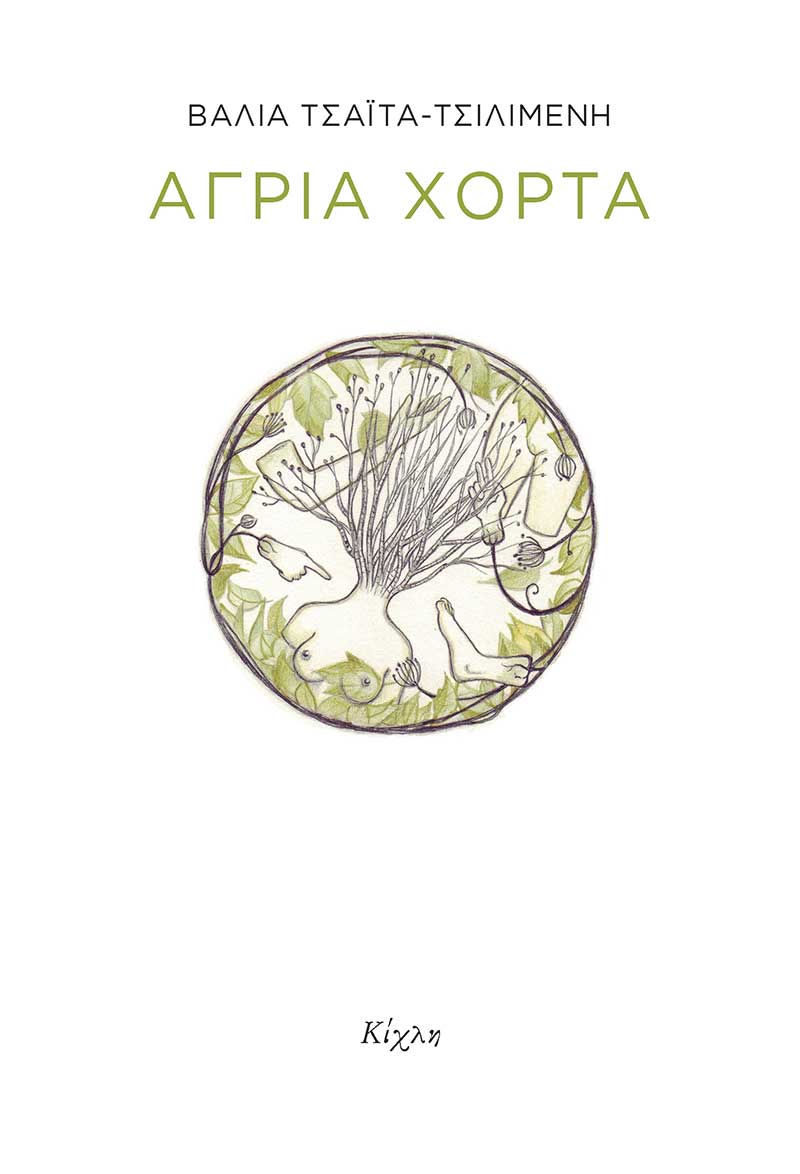
What about language? What role does language play in your writings?
Language is an expressive means that incorporates billions of possibilities without which our perception would be very limited. Personally, I do not think that there is an ideal and one-dimensional use of language in poetry. I’m neither a fan of rhyme, nor a fan of free verse, I’m just generally… not a fan. I think that is evident in my writings. I am interested in the concept of displacement, variety, the perception that every moment of written speech claims its οwn form and space. Fortunately, our language is particularly rich, with infinite formal, rhythmic and lyrical possibilities in order to adapt to every expressive need, to emphasize the respective concepts. As a poet I am drawn – for now at least – less to an abstract use of language. I want language to be present, with its details and games, with its chatter and natural silences.
How do Greek writers relate to world literature? How does the local/national interweave with the global?
I remember a visit by Greek linguist Georgios Babiniotis to Switzerland where he came to give a lecture on the Greek language. Much was said that day. One of them was that each language constitutes a separate window through which a person can look, and by extension perceive the world. I think we could adapt this thought to the question at hand. The notion of the local, the national, is not or should not be treated as one-dimensional. Through a common native language, being people who share, among other things, a common local and/or national subconscious, we offer the global sphere yet another access to human potential, to empirical language. In this way, the perception of life, the human consciousness, the potential for communication, expand – on an individual, but also on a national, collective level – highlighting at the same time the undeniable diversity in life. Greek writers constitute yet another link in the global sphere, a link which often makes it difficult – in the positive sense of the term – for translators to bring out the lexical and conceptual character of the Greek language whose thematics enables global readership to reflect more deeply on social, historical, cultural, ethnographic, etc. issues.
Recently, within the framework of an event organized by our Department in Geneva related to the presentation of the literary magazine FRMK, a student at the literature course asked me to address the following question: “It seems to me that poetry plays a much more important role in Greece today than in Switzerland, France, Germany. Can we explain this public interest?”. will not attempt to answer this question personally here, nor will I convey any answer of the FRMK poets, but I will emphasize the importance and above all the statement of the above question, which undoubtedly locates a core that is more essentially active and present in Greece. This fact testifies to the importance of a local/national literary “production”, whose potential and requirements have to offer alternative channels of communication with the world web by defining multi-level action-reaction axes that can only have positive results.
It has been argued that Greek writers who live in Greece play no role in the so-called “world republic of letters”. Yet a promising development is that in recent years Greek poets and novelists have been circulating all over the world. Is there a way for the challenges of integrating Greek literature in the international field to be met? What is the role of Modern Greek Studies in this respect?
I reckon this question is somewhat connected to what I mentioned above. I believe that the limited visibility that global readership had until recently in the field of Greek literary “production” is mainly related to political reasons, poor or complete lack of management of the Greek book abroad. Of course, in all of this, language and the potential – or not – of Greek texts being translated into other languages also plays an important role. In this respect, Modern Greek Studies Departments exert a major influence since they provide foreign students with the opportunity to learn the Greek language and come into contact with the centuries-long Greek literary production. Ιhave often found myself with students who had chosen translation and interpretation as their main studies and wanted to learn modern Greek in order to be able to add this language in their respective field of work. The problem is that these Departments are considered minor departments within the University and thus their work is not supported as it should by the University authorities who tend to depreciate and shrink Humanities in general. But this is a different, much broader issue.
To stay within the context of the specific question, indeed in recent years Greek writers have been increasingly circulating into the global world of books and this is, of course, great and promising for the promotion of Greek literary “production” abroad and for what such promotion may bring.I also consider that because of – or thanks to – the difficult years of the crisis in Greece, the country was advertised, was heard more on a global level; beyond the purely political dimension of the phenomenon, this raised global social interest, and activated readers to ask themselves, to try to get to know Greece and everything that concerns it. Realizing, of course, that what happens within the country, on a political, historical, social level, concerns them/us as well on a European – but also on a global – level. It’s indicative that during the first years of the crisis, there was a significant increase in enrolments in our Department, which, at first, seems paradoxical, but in essence is reasonable and completely understandable. In this framework, I have personally chosen to focus on the analysis of contemporary literary works, without of course disregarding the great classics of the past. What I am mostly interested in is that our students are exposed to modern voices, to understand, to listen, to be inspired, to come into contact with the modern Greek literary voice.
*Interview by Athina Rossoglou
TAGS: LITERATURE & BOOKS | READING GREECE

